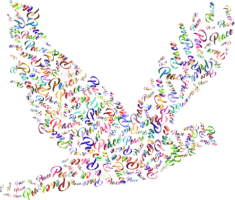 As a haven for international co-operation in a country known for its welcome to migrant refugees from all corners of the world, Geneva has been hosting high-level discussions on human rights and migration for over 100 years. Recently, the Council of the International Organization for Migration (IOM) held a special session on migration issues at the Palais des Nations in Geneva from Tuesday 26 November to Friday 29 November 2013.
As a haven for international co-operation in a country known for its welcome to migrant refugees from all corners of the world, Geneva has been hosting high-level discussions on human rights and migration for over 100 years. Recently, the Council of the International Organization for Migration (IOM) held a special session on migration issues at the Palais des Nations in Geneva from Tuesday 26 November to Friday 29 November 2013.
The Director General of the IOM opened the session by presenting the highlights of the Organization’s work in 2013. A number of thematic debriefings took place, such as the report of the Secretary-General of the IOM, the draft reports on the 101st and 102nd special Sessions of the Council of the IOM, and the report on the 110th Session of the Executive Committee.
During the session, statements were made by Ambassador William Lacy Swing, Secretary-General of the IOM, Jan Eliasson, Deputy Secretary-General of the United Nations, and Peter D. Sutherland, Special Representative of the Secretary-General of the United Nations on International Migration and Development, as well as by members and observers who spoke of promoting the role of the IOM.
Established in 1951, the International Organization for Migration (IOM) is the leading inter-governmental organization in the field of migration, working closely with governmental, intergovernmental and non-governmental partners.
The IOM Constitution recognizes the link between migration and economic, social and cultural development. With nearly 127 member states, and offices in over 100 countries, this organization is dedicated to promoting humane and orderly migration for the benefit of all. It does so by providing services and advice to both governments and migrants. The IOM works in the four broad areas of migration management:
- migration and development
- facilitating migration including migrant integration
- regulating migration
- forced migration
It also works to promote international cooperation on migration issues, to assist in the search for practical solutions to migration problems and to provide humanitarian assistance to migrants in need, including refugees and internally displaced people.


 As a haven for international co-operation in a country known for its welcome to migrant refugees from all corners of the world, Geneva has been hosting high-level discussions on human rights and migration for over 100 years. Recently, the Council of the International Organization for Migration (IOM) held a special session on migration issues at the Palais des Nations in Geneva from Tuesday 26 November to Friday 29 November 2013.
As a haven for international co-operation in a country known for its welcome to migrant refugees from all corners of the world, Geneva has been hosting high-level discussions on human rights and migration for over 100 years. Recently, the Council of the International Organization for Migration (IOM) held a special session on migration issues at the Palais des Nations in Geneva from Tuesday 26 November to Friday 29 November 2013.

